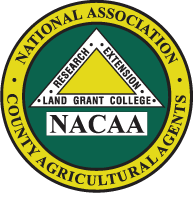PEER-TO-PEER LEARNING GROUPS AND THEIR IMPACT ON ADOPTION AND CHANGE IN KNOWLEDGE OF BEST MANAGEMENT PRACTICES FOR ALABAMA BEEF PRODUCERS
Thompson, G. L.1; M.K. Mullenix21REGIONAL EXTENSION AGENT, ALABAMA COOPERATIVE EXTENSION SYSTEM, BELLE MINA, AL, 35615-0159
2EXTENSION SPECIALIST, ALABAMA COOPERATIVE EXTENSION SPECIALIST, AUBURN UNIVERSITY, AL, 36849
Abstract:
During the previous five years, the Alabama Cooperative Extension System Animal Science and Forages Extension team developed an educational program for advanced beef producers called the Systems 360° program. This program was designed to facilitate peer-to-peer learning, and highlighted best management practices in beef operations through hands-on education at Auburn research centers and private farms. In north Alabama, the Tennessee Valley Systems 360° Working Group was offered in 2016-2017 and again in 2018-2019 to producers to highlight practices related to grazing management, facilities, watering systems, value-added marketing of feeder calves, etc. A follow-up survey was conducted using Qualtrics with participants from the program (n = 25 participants; 60% response rate) in winter 2020 to determine level of adoption and relative change in knowledge about practices shared in the program. Survey participants were asked to answer ‘Yes or No’ to changes in management, rank their relative preference (1, most preferred choice to 4, least preferred; Likert-type scale), or provide open-ended responses regarding various aspects of the program. Producers reported that they benefited most from visiting farms showcasing a given management concept (rank 1 ± 0.07 SE) and getting to know other producers in the group (rank 2 ± 0.08 SE). Program participants reported an increase in the use of cool-season annuals as part of their farm management, and a 10% improvement in grazing management practices used on their farms. There was a 28% increase in the use of watering systems in forage-livestock operations as a result of participation in this program. Over 70% of the respondents reported that they had made improvements to animal handling facilities or fencing infrastructure on their farms after completing the program. Finally, up to 26% of the respondents noted that they had made changes to their feeder calf management or marketing, which resulted in added value to their calf crop. These observations suggest that peer-to-peer learning groups are a successful model for providing an engaging learning environment for producers while providing management information to effect change on Alabama beef operations.
